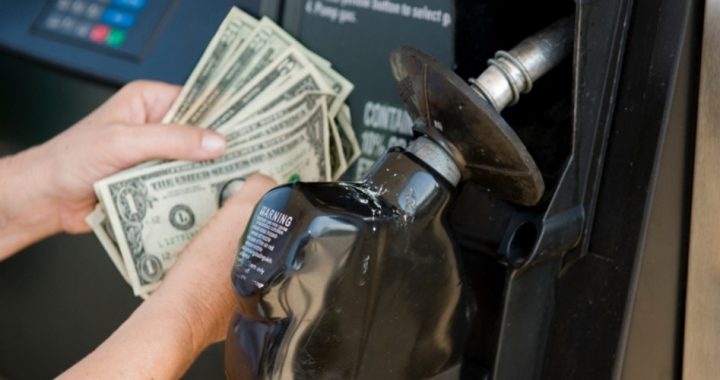
Even many conservatives believe free enterprise should be cast aside during a natural disaster, trusting instead the benevolent hand of government to cure this supposed “imperfection” in liberty.
Americans across the country rightly hurt when other Americans face natural disaster, as is now the case in the Houston area with the massive flooding that has claimed lives and destroyed property. But as surely as night follows day, such emotions lead to the predictable outcry, pumped by the media and vote-seeking politicians, to invoke government controls on prices, so as to control “price gouging.”
It is truly amazing how quickly so many Americans, even those who call themselves conservatives and champions of free enterprise, are to ditch the free market, and call upon the heavy hand of government to intervene. When he was giving his last talk in Congress, Texas Congressman Ron Paul lamented that he did not know why liberty is such a “hard sell.”
Raising prices, for example, may result in commodities still being available that otherwise would have sold out. Which begs the question: Is it better to have a resource available at a higher price, or not have it available at all?
In a way, one can understand the outcry against rising prices for needed commodities such as hotel rooms and water bottles in the Houston area in the wake of Hurricane Harvey. But, the disaster there has even led to price controls in Oklahoma.
Why? Oklahoma Governor Mary Fallin issued a statewide declaration of an emergency on Wednesday, in an apparent effort to help state and local governments in Oklahoma respond more rapidly to aid requests caused by the rains in Texas and Louisiana. But because of that declaration, an Oklahoma law, the Emergency Price Stabilization Act, was triggered. This law forbids an increase of more than 10 percent for the price of goods and services.
It also allows the attorney general to prosecute those who violate that law as “price gougers.”
Attorney General Mike Hunter quickly made clear that he intends to prosecute those he believes are violating the statute. “Our Gulf Coast neighbors need our help right now. This statute will send a clear message to those who are trying to take advantage of others that they will be prosecuted for engaging in price gouging.”
Any prosecutions Hunter undertakes under the law will no doubt prove to be quite popular. A previous attorney general in Oklahoma, Drew Edmondson, said in 2010, “Unfortunately, there are a few people who look to profit from someone else’s tragedy.” If one eliminated all occupations that “profit” from another person’s tragedy, then physicians, funeral home directors, ambulance drivers, trial lawyers, and politicians like Edmondson would have to look for a different line of work.
Texas Governor Greg Abbott was his state’s attorney general in 2010, and at that time he commented, “We are prepared to act quickly if gas prices in a Governor declared disaster area spike beyond what the normal market forces set.”
Abbott’s phrase, “normal market forces” is actually quite descriptive of what happens in a disaster such as a hurricane, tornado, or even a terrorist attack. Prices are the language of the marketplace. They communicate to sellers and buyers alike that a new normal has arrived. Following a disaster, the supply of a product has typically declined, and the demand has typically increased. This means that the price should rise. When the price is not allowed to rise, by popular but wrong-headed government laws, an acute shortage is quickly transformed into a chronic shortage.
The solution? Allow the price to rise to its normal market level. When this happens, more suppliers will enter the market, increasing the supply of the good or service. Some buyers will then drop out of the market, and the shortage disappears. When demand drops, the price will also drop.
This is basic economics, yet we have demagogues of both major political parties who insist that the market has produced the wrong price. They want to tell a lie and say the price is lower than what it actually is. The lie is repeated by politicians who want votes, by media who use the anger against some storeowner to generate higher ratings, and by those who simply want a product or service for a lower price than the true market price.
Some will concede that the above analysis is true, but then argue for “special situations” in which charging “too much” is price gouging. They contend that it is “taking advantage” of people to charge higher prices after a natural disaster.
But when the market has gone up, say 18 percent, and the “benevolent” government steps in and says a person cannot offer his own property for anything higher than 10 percent, what happens? A shortage, of course.
Let’s be honest. When we have a horrific situation as exists now in the Gulf Coast, with thousands of our fellow Americans without power and water, it is easy to attack (and even prosecute) a supplier. It makes some people “feel good.” But it does little actual good, and a whole lot of bad. What good does it do a person if a bottle of water is controlled at two dollars, if, because of that price control, no bottles of water actually exist, because they have all been purchased?
What is so dangerous about these price gouging laws is that they leave the impression that government can, by decree, alter the natural workings of the free market in such a way as to benefit the public. Sadly, many will conclude that since the free market does not work well during a disaster, why should we have a free market in normal times?
As Ron Paul asked, “Why is liberty such a hard sell?”



